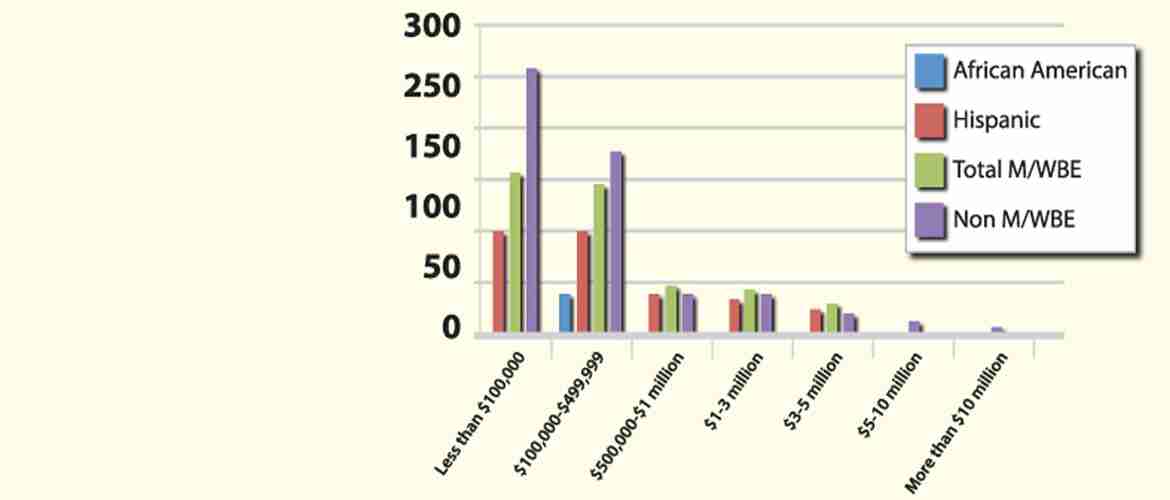MIAMI-DADE — Miami-Dade County Public Schools has released an audit of the recent disparity report that was challenged by Black community leaders and reveals several inaccuracies.
“We recognized up front that there were significant inequities, thus the disparity study, thus the community input that we are inviting,” said Superintendent Alberto Carvalho.
According to the report, there were several areas that were misreported, including capital construction. The audit found discrepancies within the following categories: African-American businesses were only awarded contracts between $100,000 and $499,999 whereas other minorities received contracts of up to $5 million; non minority/women owned businesses earned contracts of up to $10 million.
“There is no excuse for the well-documented inequity that has existed for more than 25 years in this school district and the community as a whole. That is why, as a system, we have modified our policy creating new opportunities which if implemented right, will level the playing field for all. We have dramatically increased pre-qualified micro, small and minority enterprises to ensure that the shortcomings of the past are not repeated,” said Carvalho.
Meanwhile, enough information within the report was so incomplete and inaccurate that it provided a flawed database and warranted the audit.
“We found some exhibits that contained inaccurate information regarding contractors’ race/ethnicity/gender. We also found inconsistencies in the location of some contractors’ principal place of business and state licenses status,” said Jose F. Montes de Oca, chief auditor, Office of Management and Compliance Audits for M-DCPS in a letter addressing the school board.
First, MGT, the company responsible for completing the disparity study was to complete it in two phases: phase one analyzed expenditures for construction and construction related professional services; phase two will analyze the expenditures for goods and services. MGT submitted phase one in Nov., 2013 covering expenditures from July 1, 2006 through June 30, 2012 using a population of 88 capital construction projects to analyze whether disparity exists at the prime contractor level.
Using a sample of 47 construction projects, the audit verified, among other items: the businesses’ corporate existence and principal place of business with the Florida Department of State Division of Corporations; its presence in the Miami-Dade, Broward, and Palm Beach tri-county area; its licensure status with the Florida Department of Business and Professional Regulation; and its ethnicity/gender classification through information maintained by M-DCPS, Florida Department of Management Services and Florida Department of Transportation Equal Opportunity Office.
The audit found inaccurate information in 16 out of 64 exhibits in the report in areas such as race/ethnicity/gender classification and the location of the contractors’ principal place of business; and two of the firms included in the results did not have a valid state license. Furthermore, 13 of the 47 firms had businesses outside the tri-county area.
Additionally, “the contract award data is inaccurate and the Black sub-contractor issue isn’t discussed at all,” said Ron Frazier, CEO, BAC Funding Corporation. “They identify some issues with minority businesses, but do not identify the ethnicity of the minorities.”
Carvalho did announce however that an independent third party entity would be contracted to review the findings of the disparity study specifically related to sub-contractor data.
Problems such as these are why leaders from the Urban League, the National Association for the Advancement of Colored People (NAACP), and the BAC Funding Corporation made 15 recommendations to M-DCPS after reviewing the report, such as a comprehensive compliance and monitoring program and a proper contractor payment database.
Three weeks ago, M-DCPS agreed to address and implement 12 of the 15 recommendations and has launched “an immediate implementation of the accepted recommendations.”
“This community waited 30 years for a disparity study. We launched into it knowing that there would be controversy. The failure to do so would perpetuate the inequities that we knew existed,” said Carvalho.












No Comment